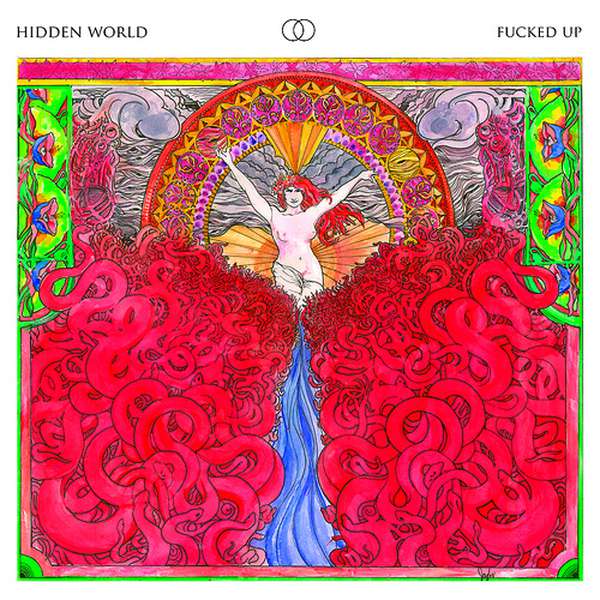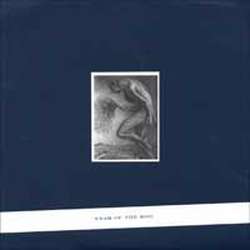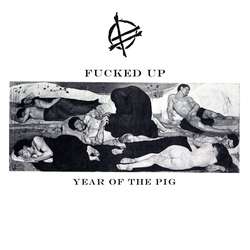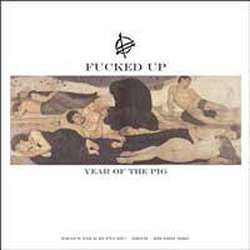By now, you've probably already heard Hidden World. It leaked months ago, and the band even posted a link to one of its downloading proxies on their blog. Before long the Internet was awash in reactions, most grouped along two polarities - while plenty of listeners thought they were hearing something important, just as many others lamented that "the drums are too slow, the bass is too fast, the chords are all wrong, they're making the ending too long", etc.[1]
If you've peeked ahead at the ending, you already know where I stand. Hidden World is a bona fide punk rock classic. It's got all the strange, smoldering intensity of GI and the kind of epic scope that made Zen Arcade such a landmark. I saw one e-warrior complain that the band hadn't made the kind of "quantum leap" that Hüsker Dü did with their beloved mid-'80s LPs, but such a complaint is poor historiography because it takes records as perfect documents without allowing for the complexity of how a band actually evolves. Hüsker Dü always had pop smarts and sensibilities even if they didn't show on Land Speed Record, and Greg Ginn was at heart as much a sorcerer of six-string skronk and discordance on the Nervous Breakdown EP as he was on The Process of Weeding Out.
Such is the case with Fucked Up: a perfect example of this is the recent diss track "The Line", which hilariously blasts Billy Talent over sloppy, collapsing hardcore. The song is about as far as you can possibly get from Hidden World's ornate hardcore arabesques (or the shimmering near power-pop of "Teenage Problems" and "Neat Parts"), yet both are inescapably Fucked Up. What's really worrisome is that, years down the road, some of Fucked Up's sense of humor may be lost when only the records persist as documents of these heady days. Punk has always been fanatically concerned with identity and deeply uncomfortable with its instability and multiplicity; the truth is that "we're not one, we're two."[2]
But this isn't Postmodernism 101; what about the songs? "Crusades" kicks off with a quote from Corinthians and a gentle curtain of sighing melody before ripping into one of the most driving, punishing and arcane hardcore songs I've heard in years. The music actually lives up to the epic scope of its words, like a rampaging horde of bloodthirsty zealots screaming SSD lyrics and Nietzsche quotations while they burn your house to the ground. And "David Comes To Life" ups the ante, sounding like Integrity covering the Ramones, complete with Spectorian ooh-ing backing vocals.
In a record so overflowing with jaw-dropping moments, it's hard to even single any out. There are the stunningly infectious, Easybeats-esque guitar riffs in "Carried Out to Sea"; the immediately memorable chant-along break in "Triumph of Life"; the killer guest vocals by Ben Cook and George Pettit on "Manqueller Man" and "Vivian Girls"; the way the rolling drums and ringing guitars of "Blaze of Glory" evoke vintage surf rock; the pure venom of Damian's soliloquy during "Jacob's Ladder". And that's not even counting the tasteful and bizarrely appropriate string codas to several of the songs (the quasi-orientalist outro to "Two Snakes" is my personal favorite).
Everyone turns in incredible performances. 10,000 Marbles and Concentration Camp transmute punk's leaden three-chord arsenal into golden, baroque beauty that's both ethereal and devastating. Mr. Jo provides the beating heart for these miniature epics, adding plenty of flourish and dynamism. Mustard Gas is the band's secret weapon, and her punchy lines provide the rocket fuel for "Invisible Leader" and the new-and-improved second section of "Baiting the Public" ("dementia of a higher order"[3]), amongst others. And I really can't say enough about Pink Eyes, who turns in one of the greatest vocal performances a hardcore band could ever hope for: commanding and vicious without ever losing track of the tune.
The artwork is flawless: Ryder Waite-esque black and white designs broken up by bursts of glorious Technicolor, with iconic but fragmented photos of the band themselves. I could write a whole second review about the lyrics. 10,000 Marbles and Pink Eyes spin an intricate rhetorical web that's poetic, captivating, and incredibly deep. It's also a bit overwhelming at times: there's few bands in existence that can hope to compete with Fucked Up in the realm of conceptual sophistication, as they examine religious fanaticism, de-individuation, postmodern cultural malaise, death, lust, and beyond. As Pink Eyes noted in an interview, "you're going to need an encyclopedia to get some of the references; I know I did." The album does have a very consistent theme: the organic breakdown of interdependent polar opposites, which are destabilized by a more potent and natural order (the eponymous realm suggested by the album's Venn diagram insignia). There's a powerful sense of the subject swallowed up by the sublime -Hidden World's grand and eerie visions are unrepentantly romantic.
I've listened to this record literally dozens of times, and I contemplated the final score for a long time-trust me. In the end, I would find myself being dishonest if I gave it anything less. I can't give it a 10 because perfection is illusory and besides, I think it's careless to pronounce something still so new to be flawless. The album is also a bit willfully difficult at times and I have a couple tiny nitpicks (like the formatting of the lyrics in the liner notes; the empty space bugs me). But as much as anything else, Hidden World is a reminder of just how much is possible in punk rock and in music itself. This is important, because it's easy for even the die-hard among us to lament that the punk present is eternally clotted with insipid revivalist hacks, bandwagon-jumping posers, and smug shoe collectors. Fucked Up offers a brilliant, iconoclastic reminder of how important all of this can be. It's "something to dream on."[4]
1. Jan Paul Beahm, 1977.
2. Darby Crash, 1979.
3. Crash, 1979.
4. Crash, 1979.








